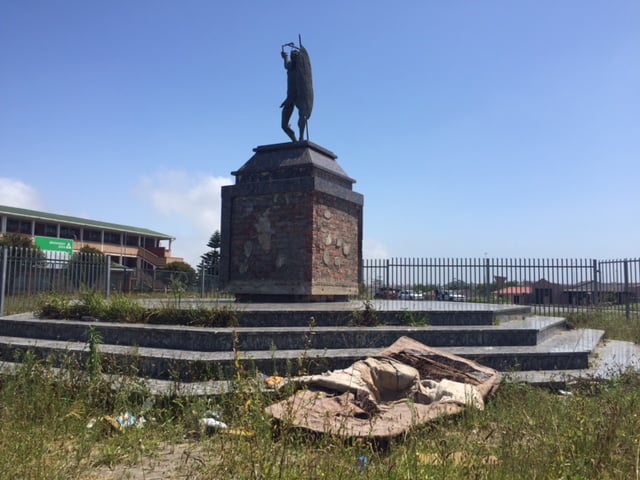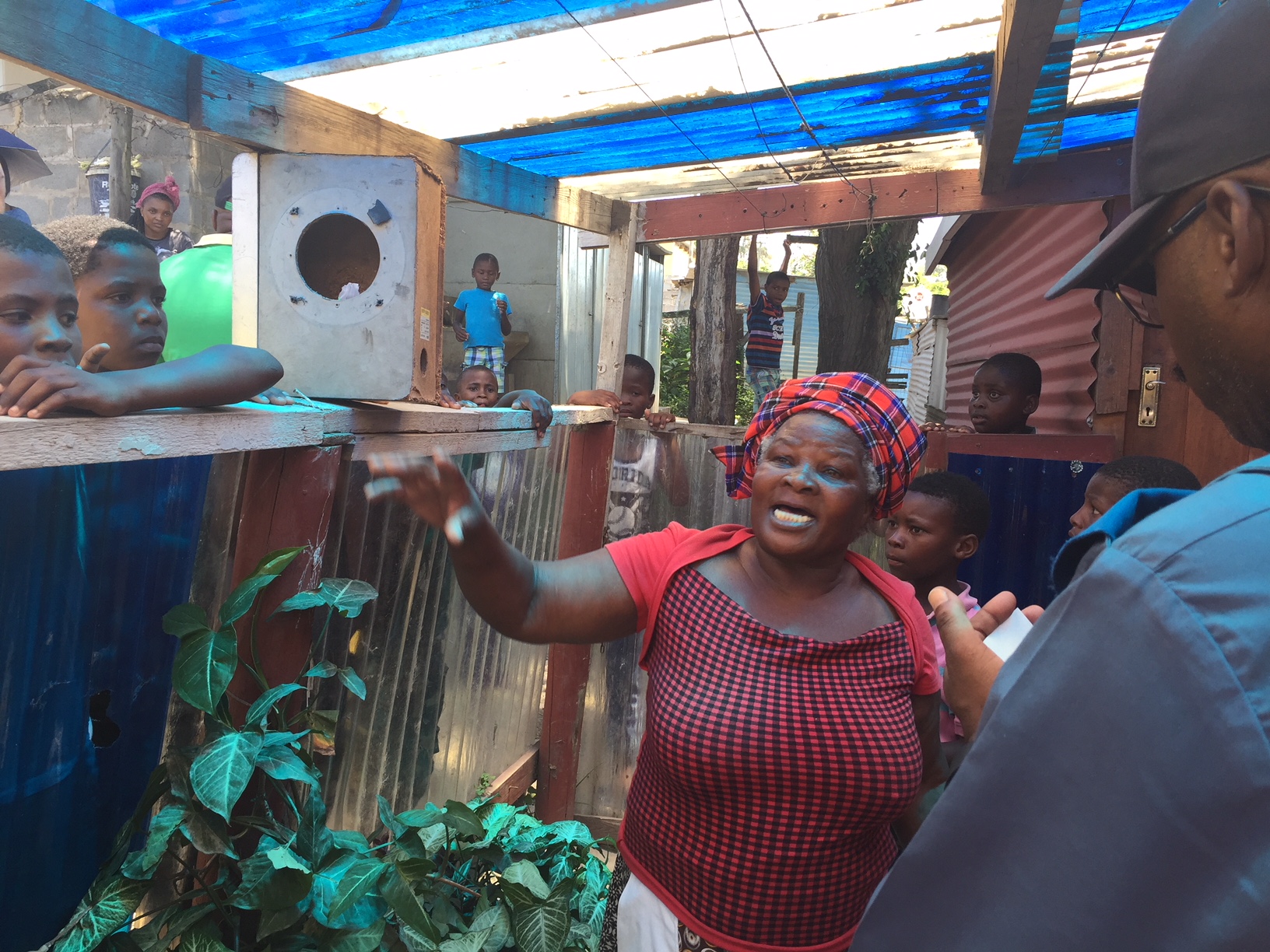Despite uneven development in East London
ANC president Cyril Ramaphosa’s door-to-door visits in East London’s Duncan Village township was a tale of messianic hope and dejection, with the new party leader being welcomed by cheering crowds and chased away because of broken promises.
Twenty-four years after democracy, Duncan Village remains a mix of informal settlements and RDP housing, about five kilometres from East London’s central business district. The township is named after the colonial governor of East London, Patrick Duncan, and was the site of several protests in 1985 against the apartheid regime, in which 31 people were killed.

Duncan Village was the site of several protests in 1985 against the apartheid regime. (Paul Botes/M&G)
These days Duncan Village is better known for underdevelopment and broken promises, resident Lindiwe Kwayiba told the Mail & Guardian on Friday.
“We need houses and work. There are many people who are unemployed and staying in shacks, and more and more people keep coming here from Transkei to look for jobs and better schools.”
Despite this, Kwayiba screamed with excitement as she watched Ramphosa emerging from her neighbour’s house. The newly-elected president visited four homes, taking note of residents’ complaints and encouraging them to continue supporting the ANC.
“Cyril can make a difference. We believe in him a hundred times more than [president Jacob] Zuma,” she exclaimed. Asked why she thinks Cyril would do better, Kwayiba hesitated:
“We can’t explain it, but we believe,” she said.
Anelisa Luzipo, 25, was just as excited to have Ramaphosa visit her shack where she stays with her mother and two brothers. The dwelling has two double beds and a kitchen cupboard and fridge separated by a small carpet.
Ramaphosa started his visits at Luzipo’s place. She told him that she hasn’t benefitted at all from the ANC, but was then asked if she received a grant.
“He asked me where did I get the grant from. So that’s where the conversation was, because I got a Sassa grant and NSFAS, because I was doing business management at Buffalo City FET college. So I did benefit from the ANC,” Luzipo said.
Ramaphosa witnessed firsthand the dejection of Duncan Village residents over their quality of life. This was demonstrated by Nini Zenzile, who chased Ramaphosa away from her family’s shack.

Nini Zenzile angrily asked Ramaphosa to leave (Paul Botes/M&G)
Zenzile recently travelled to Duncan Village because her son was stabbed. When she opened a case at the local police station she received no response and so vented her fury at Ramaphosa, who was on the walkabout with finance minister Malusi Gigaba and a host of other police officers.
“You are not going to come into this place, why can’t you deal with the police who are doing nothing about my case?” Zenzile shouted.
“We’re going to get someone here to help you with your case,” Ramaphosa responded in a calm tone.
“We’re just asking you to please calm down a little bit and these police will assist you,” the ANC president said.
The police arrived with three warrant officers and a futile search through Duncan Village ensued for the man who attacked Zenzile’s son.
Thembinkosi Gaqa, 43, believes he was exploited at his previous job but didn’t blame the governing party.
In 2015, he had managed to secure a job, which ended in 2017, through a labour broker. The company which had found him the job would routinely take half of his R1 400 pay cheque every month.
Looking on as hundreds of people clad in ANC t-shirts gathered around the houses Ramaphosa went to visit, Gaqa says he wants to ask the ANC president to make sure no-one else is exploited in the same manner.
“This thing of labour brokers must end. I want to tell him only that,” Gaqa told the M&G.
Despite uneven development in East London, and feelings of neglect by Duncan Village residents, in this area, the ANC’s support has not dipped below 60% since the 1994 elections, the party’s head of elections Nomvula Mokonyane told the M&G.
“Duncan Village has been doing good, but we can’t undermine that because we can’t have [support in] this area growing without any substantial intervention,” she said.